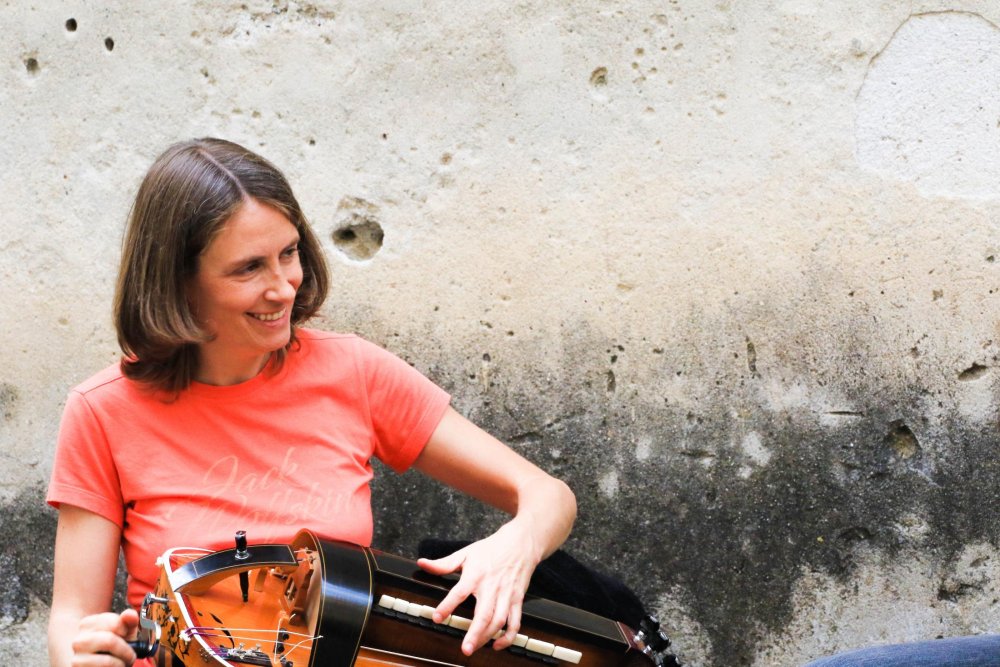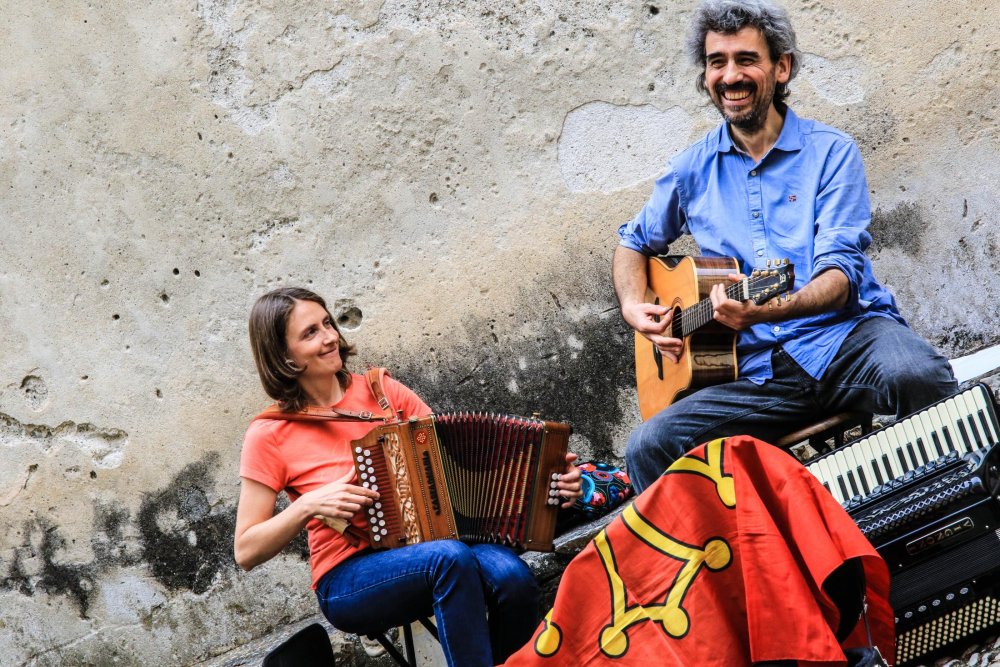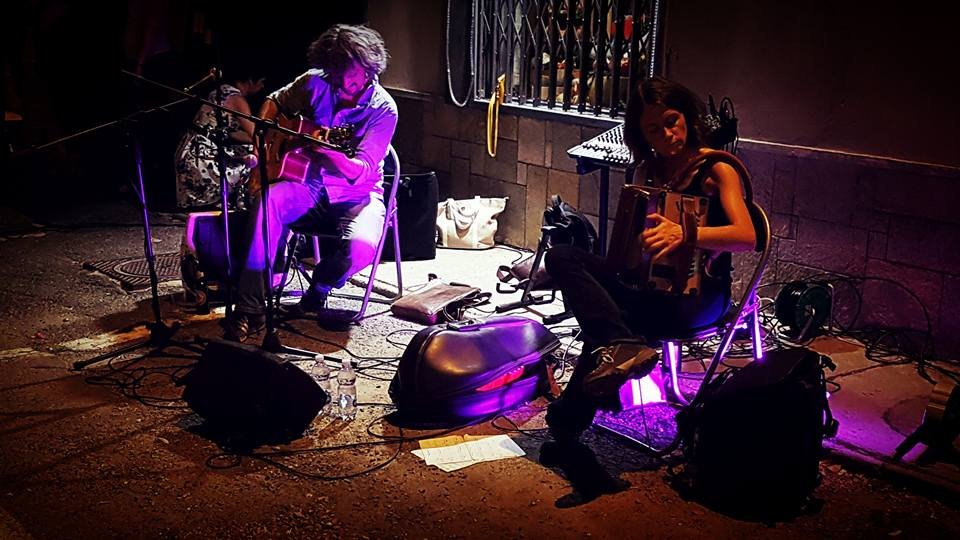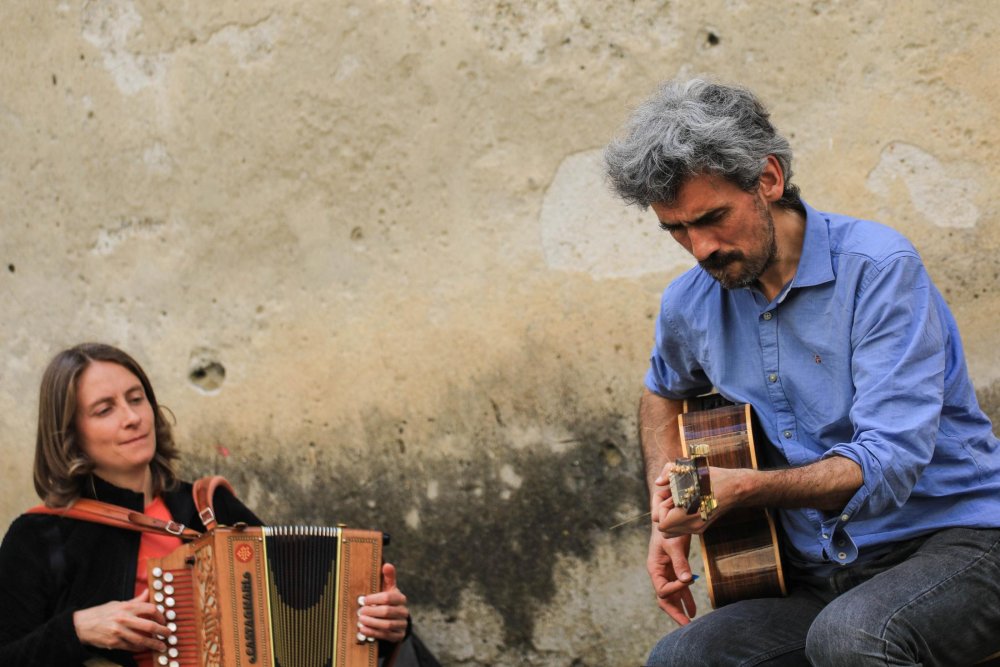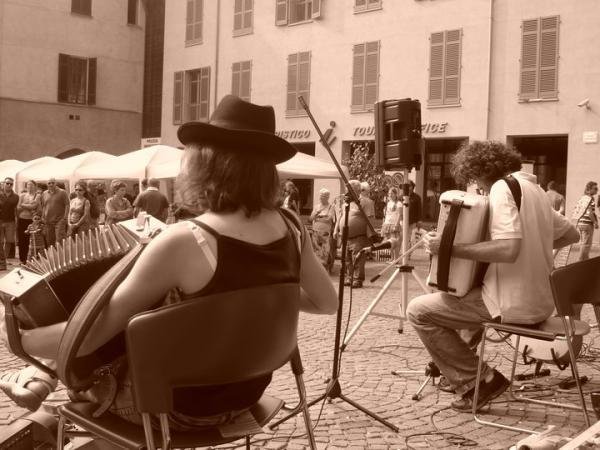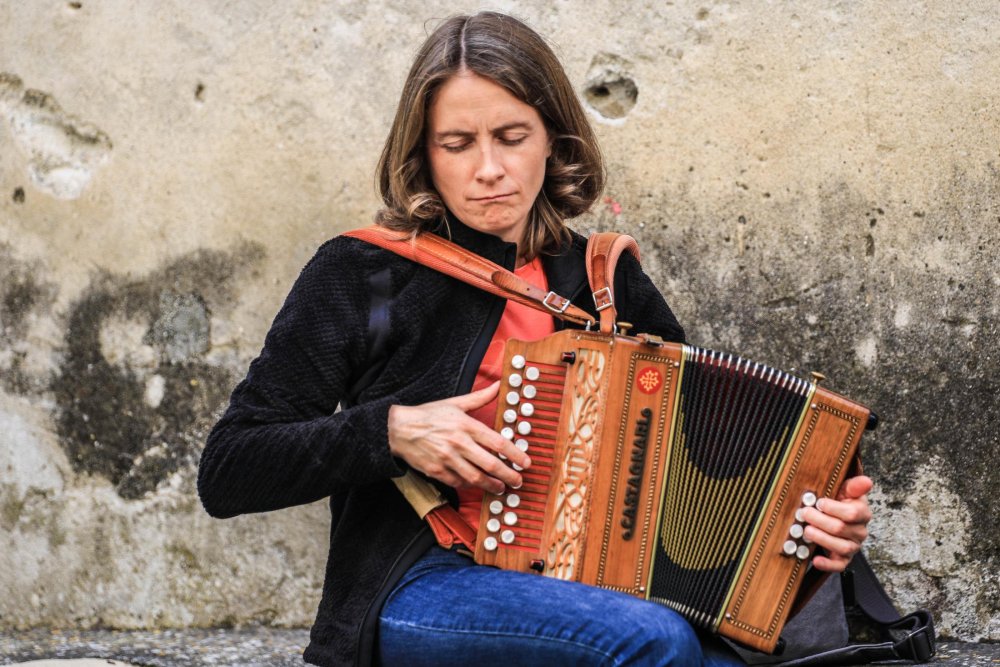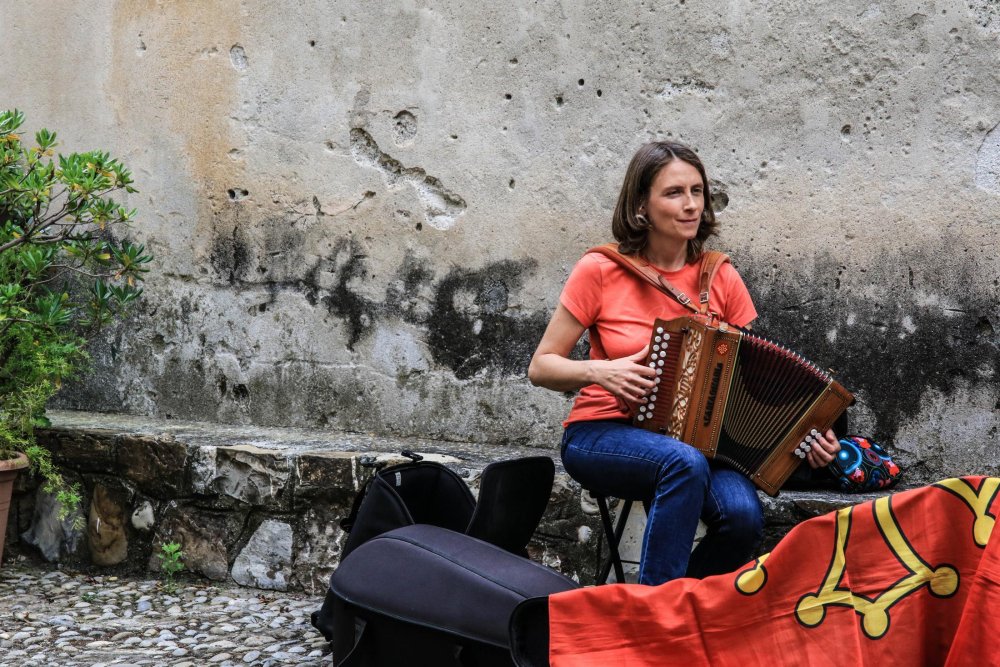When Giuseppe and Simonetta visit Locanda Mistral, they create very special afternoons and evenings for us! Aperitifs and dinners accompanied by Occitan music make the experience unique for our guests. Simonetta and Giuseppe are the QuBa Libre, a duo dedicated to traditional Occitan music and reinterpreting it with modern touches.
Today we talk to Simonetta about her life as a musician, her connection to the Valle Maira and why she feels connected to Occitan culture.
Dear Simonetta, we’d love to introduce you to our readers. Can you tell us something about your connection to the Valle Maira?
My connection with the Valle Maira is very strong, I grew up in Elva and have my roots there. For professional reasons I had to move near Cuneo, but my parents still live in Elva, so I come home as often as I can.
Your duo is called QuBa Libre: how did the band (and this name) come about?
QuBa Libre was born in 2010 thanks to our meeting with Giuseppe, and the name derives from a banal play on words: we put together the initial syllables of our last names (Qu from Quattromini and Ba from Baudino), which together form the word QuBa, and QuBa could only be LIBRE, in reference to the famous revolutionary slogan, but also because the word "libre" means "free" in Occitan. Just as we feel free to revisit and reinterpret the Occitan musical tradition.
You’ve introduced many of our guests to Occitan music and culture and enriched their stay with traditional sheet music. Can you give us an insight into the origins of Occitan music, what distinguishes it and what the original instruments are?
Occitania is a cultural region that stretches from the Alps in southern Piedmont to the Pyrenees, crossing the whole of southern France. This region, which has existed since the Middle Ages, has never become a state, but has preserved its cultural identity over the centuries. This identity consists mainly of a common language, but also of musical and choreographic traditions and have survived to this day. Occitan music is not only music for dancing, there are also Christmas songs (nouvé), work songs, love songs.... The instruments used are traditional (hurdy-gurdy, different types of flutes and bagpipes, violin, diatonic accordion, accordion, drums), but some groups have also introduced more "modern" instruments such as electric guitar, bass and drums. In our valleys, Occitan music and dances have become a common form of entertainment for young people, adults and children, thanks to the valuable and passionate work of Sergio Berardo, the director of Lou Dalfin.
You know the Valle Maira very well: how do you judge its development and what do you wish for our alpine valley?
I love the Valle Maira for its wild nature, which has managed to remain intact (or almost intact) over the decades. I believe that for a positive development of our valley it is essential to preserve the landscape and cultural authenticity. I believe that especially visitors from abroad, precisely because of these aspects unique to the alpine world, visit the Valle Maira and spend their vacations with us.
You’ve been our guest at Locanda Mistral for years: What do you think our guests expect when they stay with us? What are our special features?
I’ve already partly answered this question. But I would like to add that your Inn is very welcoming and pays attention to every little detail. I think that you manage to create a link between first-class service and respect, as well as appreciation for the environment. The location is also very good, both for excursions in the mountains and for visits to the artistic heritage of the region.
We’re very excited about the future of QuBa Libre. Are there already plans in place?
We’ve been working for a few months on our new CD, which will include a repertoire of nouvé, the traditional Occitan Christmas songs. The CD is conceived as a vigil (velhàa in Occitan). This is one of those ancient customs that allowed people in the valleys and countryside - not only in Piedmont - to spend the evening together in the barn, in the warmth, with stories, singing and dancing.... Our nouvés will be mixed with danceable pieces (some composed by ourselves) so that the party can satisfy the needs of all ears, so to speak.
As always, our last question: is there anything we haven't asked you that you would like to share with us and our readers?
You didn't even ask me how long it takes to tune the hurdy-gurdy.... Some people would tell you that the hurdy-gurdy player spends half of his time tuning the instrument and the other half playing out of tune! But I don't know if this is really the case :-). What I can tell you for sure is that the ancient and mysterious charm of the hurdy-gurdy enchants the listeners and the player himself and creates a magical atmosphere.




